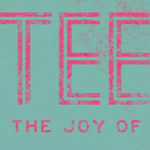DALLAS—Battles in the Texas State Board of Education over social studies textbooks really amount to a conflict over what kind of nation the United States was founded to be—and what it may become in the future, a nationally recognized authority on religious liberty issues told an interfaith gathering in Dallas.
“It’s important to all of us because what happens in Texas schools doesn’t stay in Texas schools. What Texas says goes in those textbooks, the rest of us have to read,” said Charles Haynes, senior scholar at the First Amendment Center in Washington, D.C.
Texas is the second-biggest buyer of textbooks in the United States, behind California, and many publishers craft their books with the Texas market in mind.
“What we teach in the public schools matters,” Haynes told a group at Northaven United Methodist Church in Dallas during the “Faith & Freedom Speaker Series,” sponsored by the Texas Freedom Network Education Fund.
Two outspoken critics of church/state separation—evangelical author Peter Marshall and David Barton, founding president of the WallBuilders organization—are among the panel of experts appointed to guide the Texas textbook standard writing process.
When Marshall and Barton speak of “Christian America” and stress its importance in teaching history and social studies, the term means more than a nation where a majority of the people claim Christian faith, Haynes noted.
Instead, they believe the United States has “fallen away” from its founders’ ideals, and they are driven by the desire to “restore America by recovering its biblical roots.”
Their calls for teaching more about the importance of the Puritans’ influence on colonial society and for stressing to students how the First Great Awakening set the stage for the American Revolution are appropriate, he noted. Christianity’s role in American history should be taught, he said, “But we need to get it right. … I’m concerned about what’s left out of the Christian America vision. It’s selective history.”
Puritan John Winthrop’s vision of America as a “city on a hill”—a shining example of Christian virtue—needs to be balanced by Roger Williams’ commitment to full liberty of conscience for all people, including those with whom he deeply disagree theologically, Haynes noted.
Sign up for our weekly edition and get all our headlines in your inbox on Thursdays
At the time of the American Revolution, some of the founders wanted not just a Christian America but an exclusively Protestant America, he observed.
But others— such as Benjamin Franklin, Thomas Jefferson and Thomas Paine—hardly fit the mold of orthodox Christianity.
“We were diverse from the very beginning,” Haynes noted. “The framers were divided.”
And history curriculum should reflect that balanced picture, he stressed.
“What I don’t want is selective history that gives a skewed understanding,” he said.
Neither “the restorers” who want to return to a Golden Age of Protestant America nor “the removers” who want to turn public schools into “religion-free zones” should be allowed to prevail, Haynes insisted.
“The land of the free has in many ways become the land of the easily offended. The answer to speech we don’t like is more speech, not less speech,” Haynes said.
Public schools should neither “inculcate nor inhibit religion,” he emphasized. Instead, they should be places where the religious liberty rights of all students are protected, and “civil habits of the heart” are instilled, Haynes said.














We seek to connect God’s story and God’s people around the world. To learn more about God’s story, click here.
Send comments and feedback to Eric Black, our editor. For comments to be published, please specify “letter to the editor.” Maximum length for publication is 300 words.